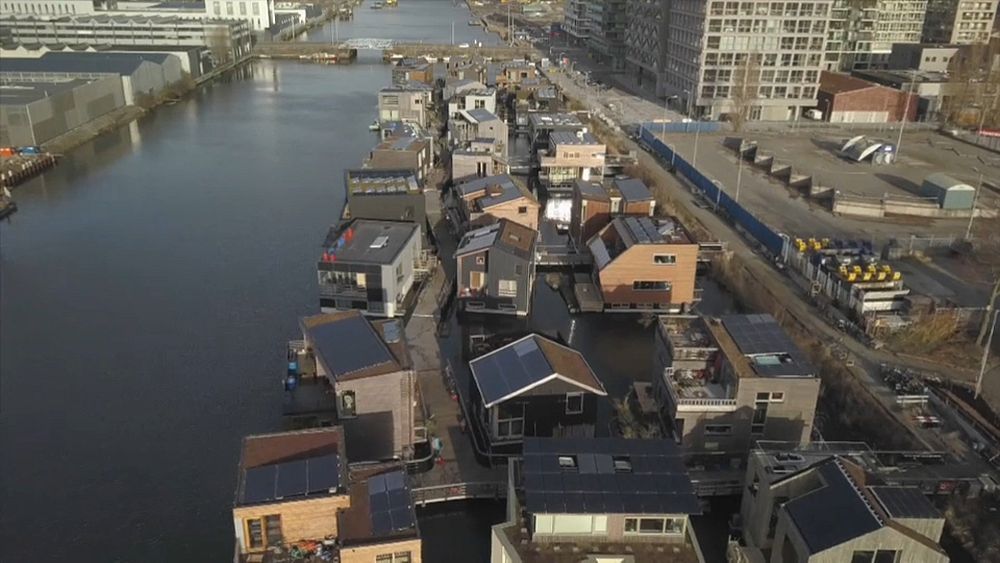With a quarter of its land below sea level, the Netherlands is particularly vulnerable to climate change. No wonder then that climate is one of the main topics in this week’s general election.
Photojournalist Kadir van Lohuizen travels around the world documenting the effects of climate change. He”s become an expert on the issue:
“We are seen as a very green country, lots of opportunities specifically with wind energy, why are we not moving ahead? If you look at the programmes of the main parties, it’s being mentioned that there is a climate crisis, but it doesn’t feel like there is any real action taken by the government.
“We could do something. It is not the question if the sea level will rise by one or two metres. The question is when.”
Maybe renewable energy can reverse the situation. Yet even some who vote for the Greens don’t want to see windmills in their own backyard. In this Amsterdam suburb, inhabitants are protesting against a project to build new windmills.
“I don’t like the noise and the turning of the blades,” one local resident explains.
Meanwhile, just a few kilometres away, the future is already taking shape. ‘Clean Ship’ is one of Europe’s most sustainable neighbourhoods. Since last year, fifty families are living here carbon neutral, in floating houses.
Pepijn Duivesteijn is one of the residents:
“It’s a very diverse group of people living here. It’s really special. You live on the water, in the city.”
The houses generate their own energy and are connected with smart technology optimising resources.
“We have a smart grid system with batteries,” Duivensteijn says. “Each home has a battery and they work together.
“We have a lot of technology here, but the most important thing is isolation. We all have a wall of around 40 centimeter, with healthy materials, like wood chips, so safe on systems.”
Just like van Lohuizen, Duivensteijn is sceptical that this election will lead to real climate action”
“There are some parties on the left who take it seriously, but the majority of the parties in The Netherlands do not and don’t see that climate can be a solution, to education, economy and living healthily. When the sea level rises, my house will be somewhere up there, but let’s hope that’s not necessary.”
Duivensteijn’s house may float, but others are less lucky. It is now widely accepted that in the future parts of the Netherlands will be lost to the sea. These elections might be the last chance to make serious progress with the fight against climate change.









